|
vinnie colaiuta
Vinnie Colaiuta toured and recorded with Frank Zappa.
The picture on the right shows Vinnie Colaiuta in concert at 'The Baked
Potato' in Los Angeles, CA, usa, on 2000/03/03, where he performed with Dyno 4
(Vinnie Colaiuta - Greg Mathieson - Michael Landau - Abe Laboriel,
Sr)
Late 2008, Vinnie Colaiuta toured with the Chick Corea - John McLaughlin Five
Piece Band.
|
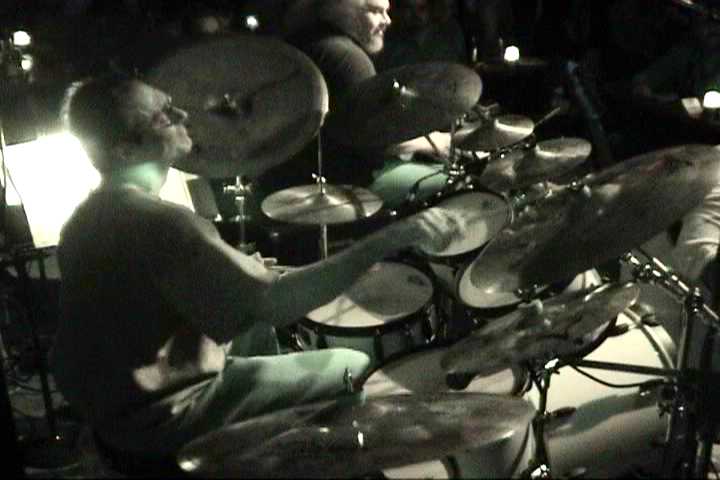 |
|
|
discography
| 28 |
frank
zappa: joe's garage act I
(1979, lp, usa,
zappa records) |
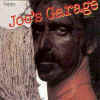
|
| 29 |
frank
zappa: joe's garage acts II
& III
(1979, 2lp, usa,
zappa records) |

|
| |
andré heller: verwunschen
(1980, lp, ger, mandragora intercord int 160 152) -
feat. vinnie colaiuta, peter wolf |
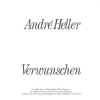
|
| 30 |
frank
zappa: tinseltown rebellion
(1981, 2lp, usa,
barking pumpkin) |

|
| 31 |
frank
zappa: shut up'n play yer
guitar
(1981, lp, usa,
barking pumpkin) |
 |
| 32 |
frank
zappa: shut up 'n play yer
guitar some more
(1981, lp, usa,
barking pumpkin) |

|
| 33 |
frank
zappa: return of the son of
shut up 'n play yer guitar
(1981, lp, usa,
barking pumpkin) |

|
| |
frank zappa: shut up 'n play yer guitar
- box set
(1981, 3lp, eur, cbs) |
 |
| 36 |
frank
zappa: the man from utopia
(1983, lp, usa,
barking pumpkin) |
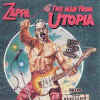
|
|
greg rolie:
gringo
(1987, cd, ger, columbia / point music) - feat.
vinnie colaiuta, arthur barrow |
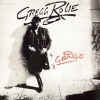
|
|
50
|
frank zappa: guitar
(1988, 2cd, usa,
ryko) |

|
| 51 |
frank zappa: you can't do that on
stage anymore vol.1
(1988, 2cd, usa,
ryko) |

|
| |
fowler
brothers: breakfast for dinosaurs
(1988,
cd, usa, fossil fbr 1002) - feat. albert wing, chester thompson, vinnie
colaiuta, ike willis |

|
|
57
|
frank zappa: you can't do that on
stage anymore vol.4
(1991, 2cd, usa,
ryko)
|
 |
| |
frank zappa: anyway the wind blows - disc 1
(1991, cd, usa, rhino foo-eee records r2 70541) |

|
| |
frank zappa: anyway the wind blows - disc 2
(1991, cd, usa, rhino foo-eee records r2 70541) |

|
| |
frank zappa: saarbrucken
1978
(1991, cd, usa, rhino foo-eee records r2 70543) |
 |
| |
frank zappa: at the circus
(1991, cd, usa, rhino foo-eee records r2 71020) |
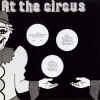
|
| 59 |
frank zappa: you can't do that on
stage anymore vol.6
(1992, 2cd, usa,
ryko) |
 |
| |
tom fowler:
heartscapes
(1992, cd, usa, fossil records) - feat. lots of zappa alumni |

|
|
64
|
frank zappa: the lost episodes
(1996, cd, usa,
ryko) |
 |
|
66
|
frank zappa: frank zappa plays the
music of frank zappa
(1996, cd, usa,
barking pumpkin) |

|
|
67
|
frank zappa: have i offended someone?
(1997, cd, usa, ryko) |

|
| |
steve tavaglione: blue tav
(1997, cd, ??, creatchy productions) - feat.walt fowler,
vinnie colaiuta |
|
| |
randy waldman: wigged out
(1997, cd, usa, ??) - feat. vinnie colaiuta, walt fowler |
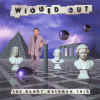
|
|
|
peter
wolf: progression
(1999, cd, ger, groove works) - feat. vinnie
colaiuta |

|
| |
karizma: document
(2000, cd, ??, ??) - feat.vinnie colaiuta |
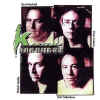 |
| |
various artists: an
all star line-up performing the songs of pink floyd
(2002, cd, usa, purple piramid records) - feat.dweezil zappa, vinnie colaiuta,
aynsley dunbar |

|
| |
arthur barrow: on time
(2003, cdr, usa, private release)
- feat.vinnie colaiuta, tommy mars, bruce fowler, robert williams and don
preston |
|
|
71
|
frank zappa: halloween
(2003, dvda, usa, dts entertainment 69286-01101-9-9) |
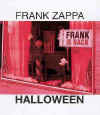
|
| |
peter wolf:
the other side
(2003, cd, austria, universal) - feat. vinnie
colaiuta |
 |
| |
julia fordham:
that's life
(2004, cd, usa, vanguard records) - feat.albert wing,
vinnie coliauta |
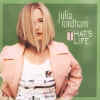
|
| |
peter wolf:
sense-ation
(2004, cd, eu, universal) |
 |
| |
various artists:
pink floyd
(2005, cd, nl, uax 96172) - feat.dweezil zappa, aynsley
dunbar, vinnie colaiuta |
|
| |
david garfield: giving back
(2005, cd, ??, ??) - feat.walt fowler, vinnie colaiuta |
|
| |
david garfield & friends: the stete of
things
(2005, cd, eur, esc records) - feat. walt
fowler, john guerin, vinnie colaiuta, allan holdsworth |
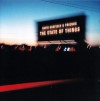 |
| |
various artists: re-building the wall - a tribute to pink floyd
(200?, 2cd, ??, ??) - feat.dweezil zappa,
aynsley dunbar, vinnie colaiuta |
|
|
79
|
frank zappa: trance-fusion
(2006, cd, usa, zappa records) |
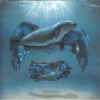
|
| |
various artists: the
frank zappa aaafnraa birthday bundle
(2006, itunes, -) - feat. frank, moon, dweezil, ahmet
& diva zappa |
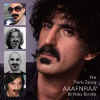
|
| |
malcolm mcnab:
exquisite - the artistry of malcolm mcnab
(2006, cd, usa, kinnell house records 1001) - incl.
'the be-bop tango' (frank zappa) |
|
| |
scott kinsey: kinesthetics
(2006, cd, ??, abstract lobix) - feat.walt fowler, vinnie
colaiuta |
|
| |
vinnie
colaiuta, jimmy haslip, peter wolf, ernie watts:
the royal dan (a tribute to the genius of steely dan)
(2006, cd, usa, tone center tc40472) |

|
| |
jeff babko:
mondo trio
(2007, cd, ??, ??) - feat. vinnie colaiuta |
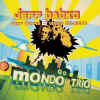 |
|
80
|
frank zappa: buffalo (80)
(2007, 2cd, usa, vaulternative records) |

|
| |
various
artists: the
ultimate tribute to led zeppelin
(2008, 2cd, ??, ??) - feat. dweezil zappa &
vinnie colaiuta |

|
|
83
|
frank zappa: one shot deal
(2008, cd, usa, zappa records) |

|
| |
various artists: the
frank zappa aaafnraaa birthday bundle 21 dec 2008
(2008, itunes, -) - feat. frank, dweezil, ahmet
& diva zappa |
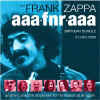
|
| |
the mar vista
philharmonic: no forest fire
(2009, cd, norway, zonic entertainment)
- feat. t.mars, w.fowler, b.fowler, k.mcgettrick, a.barrow,
v.colaiuta |

|
| |
mark egan: truth be told
(2010, cd, ??, ??) - feat. vinnie colaiuta |

|
|
robby krieger: singularity
(2010, cd, usa, oglio ogl89160-2) - feat. b.fowler, s.marquez,
a.barrow, v.colaiuta, w.fowler, t.mars and a.wing
|
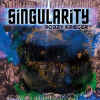
|
| |
various artists: the
frank zappa aaafnraaaa birthday bundle 21 dec 2010
(2010, itunes, -) - feat. frank, dweezil, ahmet zappa |
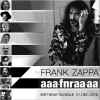
|
| |
brian bromberg: plays jimi hendrix
(2011, cd, japan, king records) - feat. vinnie
colaiuta |
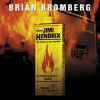
|
| |
doug lunn project: s/t
(2011, cd, usa, abstract logix) - feat. vinnie
colaiuta, mike keneally |

|
| |
oz noy:
twisted blues - volume 1
(2011, cd, usa, abstract logix) - feat. vinnie colaiuta |
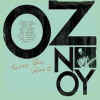
|
| |
wayne krantz:
howie 61
(2012, cd, usa, abstract logix) - feat. vinnie colaiuta |

|
| |
trevor rabin: jacaranda
(2012, cd, usa, fontana) - feat. vinnie colaiuta |
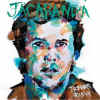
|
| |
dominic miller: 5th house
(2012, cd, usa, ??) - feat. vinnie colaiuta |
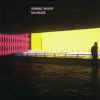
|
| |
karizma: perfect harmony
(2012, cd, usa, ??) - feat. vinnie colaiuta |
|
| |
joe satriani: unstoppable momentum
(2013, cd, usa, epic) - feat. mike keneally, vinnie
colaiuta |
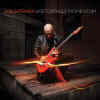
|
| |
jeff lorber
fusion: hacienda
(2013, cd, usa, heads up international hui-34476-02)
- incl. 'king kong' (frank zappa), feat. jean-luc ponty, vinnie colaiuta
and ed mann |
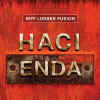
|
|
|
dewa budjana:
surya namaskar
(2014, cd, usa, moonjune mjr063) - feat.vinnie
colaiuta |
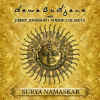
|
| |
antoine fafard: ad perpetuum
(2014, cd, usa, ??) - feat. vinnie colaiuta |
|
| |
joe
satriani: shockwave supernova
(2015, cd, usa, sony legacy recordings) - feat. mike
keneally, bryan beller, marco minnemann and vinnie colaiuta |
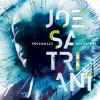
|
| |
nicolas meier:
infinity
(2016, cd, usa, favored nations fn2870) - feat.
vinnie colaiuta |

|
| |
toto: 40 trips around the sun
(2018, cd, ??, ??) - feat. vinnie colaiuta |
|
|
|
frank zappa:
poughkeepsie
(2018, cd, uk, smokin' smcd963) =
1978/09/21 poughkeepsie concert |
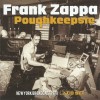 |
| |
vinnie
colaiuta: descent into madness
(2018,
streaming, usa, extreme music) = streaming-only release |
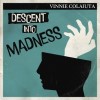 |
| |
vinnie colaiuta
/ mark isham: hard candy
(2021,
streaming, usa, extreme music) = streaming-only release |
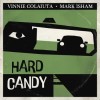 |
discography
- 1969 fischer, clare- memento
- 1976 siegel, dan- northern nights
- 1976 sanborn, david- love songs
- 1977 watanabe, sadao- bird of paradise
- 1978 pore, kenny- at this moment
- 1979 frank zappa- joe's
garage: acts 1-3
- 1979 ritenour, lee- collection
- 1980 nielson/pearson band- nielsen pearson
- 1980 vannelli, gino- nightwalker
- 1980 aaberg, philip- upright
- 1981 frank zappa- tinsel
town rebellion (percussion, drums)
- 1981 frank zappa- shut
up 'n play yer guitar
- 1981 okoshi, tiger- tiger's baku
- 1981 frank zappa- you
are what you is
- 1982 finnerty, barry- new york city
- 1982 kooper, al- championship wrestling
- 1982 medley, bill- right here and now
- 1982 newton, juice- quiet lies
- 1982 mitchell,
joni- wild things run fast
- 1982 collins, judy- time of our lives
- 1982 scott, tom- desire
- 1982 fischer, clare- blues trilogy
- 1983 allen, peter- not the boy next door
- 1983 nielson/pearson band- blind luck
- 1983 sembello, michael- bossa nova hotel
- 1983 newton, juice- dirty looks
- 1983 frank zappa- the
man from utopia (percussion, drums)
- 1984 poco- inamorata (percussion, drums)
- 1984 wilder, matthew- bouncin' off the walls
- 1984 feldman, victor- fiesta
- 1984 streisand, barbra- emotion
- 1985 lamont, joe- secret you keep
- 1985 mitchell,
joni- dog eat dog
- 1986 stone fury- let them talk
- 1986 temptations- to be continued...
- 1986 meyers, bill- images
- 1987 manilow, barry- swing street
- 1987 warnes, jennifer- famous blue raincoat
- 1987 scott, tom- streamlines
- 1987 watanabe, kazumi- birds of passage
- 1987 malta- my ballads
- 1987 brown, julie- trapped in the body of a white girl (introduction)
- 1988 kazu- time no longer
- 1988 mccann, les- butterfly
- 1988 austin, patti- real me
- 1988 perri- flight
- 1988 frank zappa- guitar
- 1988 frank zappa- you
can't do that on stage anymore, vol. 1
- 1988 stewart, al- last days of the century
- 1988 fowler
brothers- breakfast for dinosaurs
- 1988 ford, robben- talk to your daughter
- 1988 cohen, leonard- i'm your man
- 1988 djavan- bird of paradise
- 1988 ogerman, claus- featuring michael brecker
- 1988 riney, sam- at last
- 1988 riney, sam- lay it on the line
- 1988 rippingtons- kilimanjaro
- 1988 sanborn, david- close-up
- 1988 scott, tom- flashpoint
- 1988 fields, brandon- traveler
- 1988 grp all-stars: wnua 95.5 - smooth s
- 1988 grp all-stars: wqcd - cool sounds o
- 1989 beach boys- still cruisin'
- 1989 holdsworth, allan- secrets
- 1989 lennon, julian- mr. jordan
- 1989 siegel, dan- late one night
- 1989 feldman, victor- best of feldman and the generation
- 1989 gambale, frank- thunder from down under
- 1989 matsui, keiko- drop of water
- 1989 matsui, keiko- no borders
- 1989 matsui, keiko- under northern lights
- 1989 watanabe, sadao- selected
- 1989 cameron, doug- mil amore
- 1990 kershaw, nik- the works
- 1990 love, darlene- paint another picture
- 1990 chapman, beth nielson- beth nielsen chapman
- 1990 everything but the girl- language of life
- 1990 franks, michael- blue pacific
- 1990 manilow, barry- because it's christmas
- 1990 young, paul- other voices
- 1990 red hot + blue: a tribute to cole p
- 1990 benoit, david- inner motion
- 1990 higbie, barbara- signs of life
- 1990 patitucci, john- sketchbook
- 1990 rippingtons- welcome to the st. james' club
- 1990 marienthal, eric- crossroads
- 1990 bell, monna- ahora
- 1990 bach, steve- nice moves
- 1991 for the boys- for the boys
- 1991 astley, rick- free
- 1991 childs, toni- house of hope
- 1991 everything but the girl- worldwide
- 1991 fordham, julia- swept
- 1991 mitchell,
joni- night ride home
- 1991 frank zappa- saarbrucken
1979
- 1991 frank zappa- you
can't do that on stage anymore, vol. 4
- 1991 frank zappa- any
way the wind blows
- 1991 midler, bette- for the boys
- 1991 red hot & blue- red hot & blue
- 1991 siegel, dan- going home
- 1991 sting- soul
cages concert
- 1991 windham hill- windham hill sampler '92
- 1991 daniels, eddie- his is now
- 1991 peterson, ricky- smile blue
- 1991 ogerman, claus- claus ogerman featuring michael
brecker
- 1992 frank zappa- at
the circus
- 1992 tom
fowler- heartscapes
- 1992 colvin, shawn- fat city
- 1992 russell, brenda- greatest hits
- 1992 banks, tony- still
- 1992 warnes, jennifer- hunter
- 1992 frank zappa- you
can't do that on stage anymore, vol. 6
- 1992 go west- indian summer
- 1992 trevi, gloria- me siento tan sola
- 1992 cohen, leonard- future
- 1992 crowell, rodney- life is messy
- 1992 sleepwalkers- sleepwalkers
- 1992 grp 10th anniversary collection
- 1992 buell neidlinger quartet- big drum
- 1992 kelley, pat- high heels
- 1992 fields, brandon- other places
- 1992 holdsworth, allan- wardenclyffe tower
- 1992 brunel, bunny- dedication
- 1992 lellis, tom- taken to heart
- 1993 jason, sonya- tigress
- 1993 charles, ray- my world
- 1993 duran duran- duran duran [the wedding album]
- 1993 yutaka- another sun
- 1993 air supply- vanishing race
- 1993 teenage mutant ninja turtles 3
- 1993 beal, jeff- three graces
- 1993 weston, tim- providence
- 1993 steele, jevetta- here it is
- 1993 david, kal- double tuff
- 1994 rampal, jean-pierre- fascinatin' rampal
- 1994 schuur, diane- heart to heart
- 1994 four him- ride
- vinnie colaiuta: vinnie colaiuta
(1)
(1994, cd, ger, stretch records grs 00132)
- 1994 temptations- emperors of soul
- 1994 third matinee- meanwhile
- 1994 cristian- camino del alma
- 1994 fields, brandon- brandon fields
- 1994 carlos, roberto- voce e minha
- 1994 martinez, rosco- aqui estoy
- 1995 manchester, melissa- if my heart had wings
- 1995 stigers, curtis- time was
- 1995 fogelberg, dan- no resemblence whatsoever
- 1995 frank zappa- strictly
commercial
- 1995 caldwell, bobby- soul survivor
- 1995 henley, don- actual miles: henley's greatest hit
- 1995 john mclaughlin- the promise
- 1995 drupi- voglio una donna
- 1996 france- france
- 1996 clannad- lore
- 1996 frank zappa- the
lost episodes
- 1996 sting- mercury falling
- 1996 w@r.ren.cucc.u.rullo-
th@n.ks 2:/fr@n.k
- 1996 frank zappa- frank
zappa plays the music of frank zappa
- 1996 songs of west side story
- 1996 ramazzotti, eros- donde hay musica
- 1996 elio e le storie- "eat the phikis"
- 1996 mitchell,
joni- hits
- 1996 mitchell,
joni- misses (drums, drum samples)
- 1996 sanctuary: 20 years of windham hill
- 1996 ramazzotti, eros- dove c'e musica
- 1997 carnival: rainforest foundation con
- 1997 feldman, victor- fiesta & more
- 1997 garfield, david- tribute to jeff porcaro
- 1997 joel, billy- greatest hits, vol. 3
- 1997 cocoon- cocoon
- 1997 cohen, leonard- more best of leonard cohen
- 1997 evans, bill [sax]- starfish and the moon
- 1997 new spirits in jazz, vol. 3
- 1997 frank zappa- have
i offended someone?
- 1998 waldman, randy- wigged out
- 1998 the bridge- the bridge
- 1999 frank zappa- son
of cheep thrills
- 1999 progression (german cd pressing, includes peter
wolf)
- 1999 sting- brand new day
- 2000 jason miles / various artists- celebrating the music of weather report
- 2000 steely dan- two against nature
- cameron,
doug- freeway mentality
- matsui,
kazu- is that the way to your heart
- bennett,
bob- lord of the past
- magnusson,
jakob- time zone
- martin,
eric- i'm only fooling myself
- tori
amos- y kant tori read
- morris,
christopher- christopher morris band
- rolie,
gregg- gringo
- leonard
cohen- i´m your man
- golden
child- golden child
- clare
fisher- blues trilogy
- umberto
fiorentino- ulisse
- irene
cara-
- john
fogerty- blue moon swamp
- david foster
- music
from the films of steven seag
- grp
all-stars: kblx - the quiet sto
- jimi
hendrix- in from the storm
- doug cameron-
passion suite
- la
keyboard project- joined together
- michael
landau- tales from the bulge
- indra
lesmana- for earth and heaven
- dieter
libuda- maple black
- ivan
lins- awa yio
- los
lobotomies- los lobotomies
- madonna-
this used to be my playground (song only)
- jacob
magnusson- time zone
- ashley
maher- hi
- bob
malach- mood swing
- malta-
high pressure
- eric
marienthal- voices from the heart
- martha
davis
- east to west-
north of the sky
- karizma-
arms of love
- bill
meyers- the color of the truth
- pat
kelly- high heels
- robben
ford- loves' a heartache
- drupi
- doug
cameron- mil amores
- chaka
khan
- suzanne dean-
dreams come true
- toshiyuki
honda- read my lips
- the
immigrants/jennifer batton- one planet under one groove
- indio-
big harvest-
- michael
jackson
- jeacocke
sheree- miss my love
- dog
cheese
- vinnie
colaiuta- vinnie colaiuta
- helen
hoffner- wild about nothing
- ford,
robben- blues collection
- matsui,
keiko- collection
- chick corea-
live at the blue note
- the
commodores- nightshift
- bunny
brunel- dedication
- vernell
brown, jr.- a total apocalypse
- bill champlin
- natalie
cole
- julia fordam-
swept
- cluaudio
baglione
- ricky
martin- a medio vivir
- rosco
martinez- rosco martinez
- masters
of reality- the blue garden
- the the-
dusk
- george
benson/earl klugh- collaboration
- beaches-
ost
- leonard
bernstein- the songs of west side story
- the
a-team ost
- heinz
affolter- acoustic adventure
- paul
anka- walk a fine line
- claudio
baglioni- io sono qui
- david
tribune becker- siberian express
- chris
perez band- resurrection
-
- denny walley: who do / tiny tattoo
(198?, 7", usa, tee-fur tones 101) - feat.vinnie
colaiuta, ed mann, tommy mars
- karizma: document
(2000, cd, ??, ulftone) - feat.vinnie colaiuta
- chick corea: live from the blue note tokyo
(mvp japan)
- sting: ten summoner's tales
(a&m)
- gino vanelli: nightwalker
(arista)
- eros ramazotti: dove de la musica
(arista)
- los lobotomys: los lobotomys
(viceroy)
- john pattitucci: sketchbook
(grp)
- lee ritenour: portrait
(grp)
- robben ford: talk to your daughter
(warner)
- joni mitchell: dog eat dog
(geffen)
- alan holdsworth: secrets
(enigma)
- bill evans: starfish and the moon
(escapade)
- shawn mullins: beneath the velvet sun
(columbia)
- warren cuccurullo:
thanks to frank
(1999, cd5”-pro, usa, imago recording company
ima-dj-23002)
- warren cuccurullo:
thanks to frank
(1999,
cd, usa, imago recording company 72787-23002-2)
- vinnie colaiuta, robben ford and jimmy haslip: jing chi
(2002, cd, ,usa, tone center)
- take 6: beautiful work
(2002, cd, ??, warner music) - feat.vinnie colaiuta
- various artists: an
all star line-up performing the songs of pink floyd
(2002, cd, usa, purple piramid records) - feat.dweezil zappa, vinnie colaiuta,
aynsley dunbar
- frank zappa: halloween
(71)
(2003, dvda, usa, dts entertainment 69286-01101-9-9)
- mike stern: these times
(2004, cd, usa, esc records) - feat.vinnie colaiuta
concerts
1989/08/28 Allan Holdsworth - concert san antonio, usa
- Allan Holdsworth: guitar,
Steve Hunt: keys,
Jimmy Johnson: bass,
Vinnie Colaiuta: drums
- Funnels, Shallow
Sea, Looking Glass, Pud Wud, White Line, Devil Take The Hindmost, drum
solo/Non-Brewed Condiment, Maid Marion
- a 66-minute
recording of this show circulates
|
| 1992/--/-- Chick Corea New Acoustic Band - concert
'Blue Note', Tokyo, Japan |
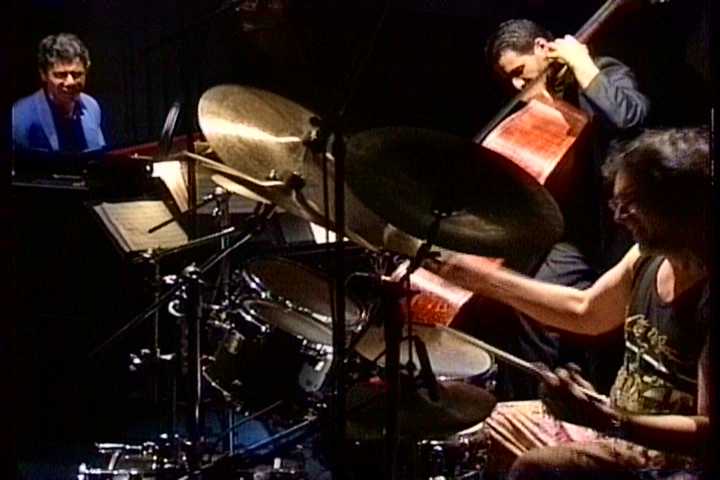
- Chick Corea: piano
- Vinnie Colaiuta: drums
- John Patitucci: bass, double bass
- Humpty Dumpty
- Tumba
- Round Midnight
- New Waltz
- Spain
|
| 2000/03/03 Dyno 4 - concert 'the Baked Potato',
Los Angeles, CA, usa |

- Vinnie Colaiuta : drums
- Greg Mathieson : keyboard
- Michael Landau: guitar
- Abe Laboriel, Sr: bass
- Goe
- Slow Glide
- I Don't Know
- LMNOP
|
| 2003/06/26 Chick Corea - concert "An Evening
With Chick Corea & Friends / JVC Jazz Festival", 'Avery Fisher
Hall at Lincoln Center', NYC, NY, usa |
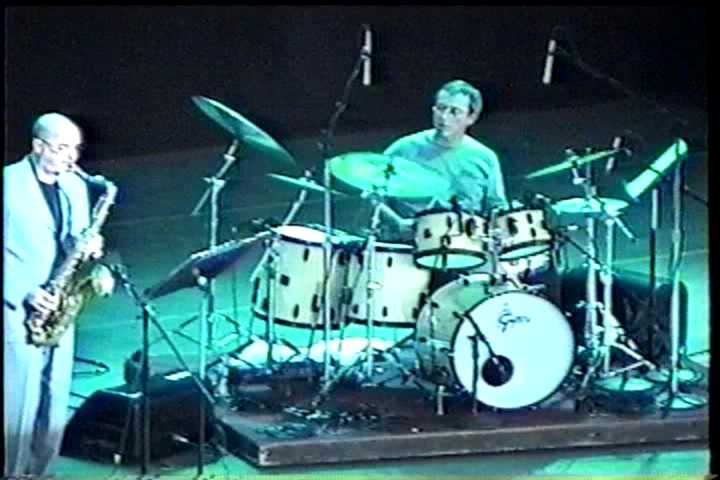
"AN EVENING WITH CHICK COREA & FRIENDS"
The Three Quartets Band
- Chick Corea: piano
- Michael Brecker: saxophone
- Eddie Gomez: bass
- Vinnie Colaiuta: drums
|
the Chick Corea - John McLaughlin Five Piece Band
Chick Corea: piano
John McLaughlin: guitar
Christian McBride: bass
Kenny Garrett: alto saxophone
Vinnie Colaiuta: drums
- 2008/11/06 concert Leverkusen, Germany
from: pro
sound news, jan. 98
tell you what,
it can never be said that vinnie is a lazy man.
after fibbing to get into the union when he was only 14 or 15, vinnie
began his percussive career playing with lounge acts, polka bands and any other
gig he could get near his hometown in rural pennsylvania.
after eventually moving to l.a. in the late 70's, vinnie landed an
audition with frank zappa, got the gig and stayed with him for 2 1/2 years.
being around zappa in the 70's must have been quite a trip, i thought.
"frank and i got along famously," vinnie said.
"probably because i didn't let him indimidate me.
he kind of took me under his wing like a father or mentor.
he was really a hero to me and was an extremely intelligent, very clever
man."
from: unknown
i recently heard that vinnie colaiuta is touring with sting. vinnie is doing the
current tour w/sting. they were
spotted on tv in europe. vc did the last sting tour in
'91 which was damn good. he plays with sting now. i saw
it on tv last week. he is still great, although i feel he doesn't really
have a change to show off that great accompanying (sp.??) style of drumming that
made it work so good with frank's music. vinnie colaiuta played with sting last night
on the grammys. (source: my tv)
he also drummed on jennifer warnes' 1986 album famous blue raincoat.
just found another album that vinnie colaiuta appears on .. it's another
jennifer warnes production called the hunter,
which dates from 1992!
as far as i remember now, he played on a few tracks on the latest "the
the" album.
from: tony.j@virgin.net
the "the the" album mentioned in vinnie's "whatever happened
to...." was dusk, and he only played on one track; "dogs of
love".
plays on david benoit's "inner motion" (one song only) .
vinnie c. plays on joni
mitchell's "wild things run fast" (1982) and "dog eat
dog" (1985). perhaps on later albums as well, but i'm pretty sure he didn't
play on earlier albums. he left fz in 1982. i remember reading an interview in
which vinnie says that his first real studio job was al kooper
"championship wrestling", which was released in 1982. appears on a few
tracks on allan holdsworth's secrets and wardensclyffe tower.
so does chad
wackerman.
vince has been busy doing jazz-fusion-type things: he appears on bassist
bunny bruenel's 'dedication' (musidisc), trumpeter jeff beal's 'three graces'
(tiloka) and guitarist (?) jeff richman's 'the way in' (mgi records). i think he
played with buell neidlinger (b) , marty
krystall (ts), and hugh schick (tp) on the big drum cd dedicated to
pianist herbie nichols.
one of my favorite albums he's on (besides joe's garage and ten summoners
tales) is the 1991 release by
brazillian singer/songwriter/pianist ivan lins (perhaps best known for his
standards "the island" and "love dance." the album is called
"awa io" and it's on reprise records. the album also features tony
levin on chapman stick, and heitor t.p. (simply red) on guitar...
vinnie colaiuta played drums on the album track "breath after
breath" from the duran duran album "duran duran (the wedding
album)", 1993. the song is a collaboration between duran duran and milton
nascimento. he did not tour with them.
played on the soundtrack to "beaches" . i don't know if he
appears on the album or not (i'll assume yes), but vinnie colaiuta has appeared
with john patitucci (bassist) in support of the latter's another world album.
reviewer jon andrews said the set was long and exciting, and included
"increasingly feverish grooves with patitucci's six-string electric bass
and gary thomas' soprano sax playing in unison, surrounded by thick synthesizer
chords and percussive crossrhythms from [sammy] figueroa and drummer vince
colaiuta."
vinnie may be on some wishful thinking albums (a contemporary jazz band).
david garibaldi was the drummer for the first two albums (wishful thinking and
thinking again), but was going to leave and vinnie was supposed to be the
replacement. i don't know if that
happened or even if any more albums were recorded, but it might be worth
checking out. if so, it may prove
to be tough to get the album. it
took me almost a year to get any of the first two albums.
he also appears on all but one cut of the as-yet-unreleased warren
cuccurullo
(aka sophia warren) solo album, "thanks to frank" (great title, eh?)
vinnie's new disc is called "vinnie colaiuta," on stretch records,
a subsidiary label of grp, #std-1110. i found it in the
miscellaneous jazz-c bin in my local teenage record shop.
disc features vc on drums and programming. rest of the cast is guest
stars, a nice collection of jazzers (herbie hancock, chick corea, john
patitucci) and ersatz jazzers (mr. sting &
co.)
vinnie also appears on one or two of vino ginelli's(sp?) albums. its classic
vinnie with his phrasing over the bar lines, and other-worldly sense of time!
also he has just released(well, maybe not just) a solo album, the title of which
eludes me right now. it might be self-titled. the first track on it is called
"i'm tweeked", and it rocks!
vinny shares the drum duties with jeff porcaro on nik
kershaw's 1989 release, `the works' on mca.
continuing the duran duran link, i *think* he was the drummer with on
various live shows promoting `thank you'... terry
bozzio also plays on `thank you'... vinnie is also the drummer on warren
cuccurullo's forth-coming solo album, `thanks to frank' a tribute to
the late great fz.
beleive it or not, vinnie is playing gretsch drums!
he uses them most of the time for studio work and is now endorsing them!
since gretsch has gone back to being "family owned," quality
has reportedly gone back to what it once was in the 50's.
vinnie is another step closer to tony williams' shadow!
i attended a concert in -93 in oslo, norway, with "john pattitucci
electric band." the band also featured g.thomas on the sax, and john
beasley on the piano/keyboards. the concert almost developed into a complete
disaster, much because of the lousy sound. the technicians actually went on the
stage in the middle of the first set to re-position the drum-mikes. the only
sound from mr. vc`s drums we could hear, was coming directly from the stage.
the guys onstage got more and more upset abot monitors not working, and
so on, and it all culminated in an unreal vent! mr. g.thomas, threw away his
soprano right after a solo, and left the stage in the middle of a song! he
marched directly towards the sound engineer and lifted his out of his chair! the
saxist was furious, and he shook the poor engineer so hard that he left the
spot, and did not return.
after that episode (naturally everyone in the audience were more or less
shaky..)things got better,until vc's double-pedal broke.
he was so upset that he started smoking in the middle of a standard, and
yelled to the assistant sound-engineer still left at the mixer.
then the band took a break while things got fixed, and jp played a
beautiful piece on his acoustic bass "bertha."
when the band entered the stage after this it was a ne band!
vc played his guts out, and surprised the rest of the band with a couple
of out-of-this-world-solos. it was enormous! you could see that the man was
throwing some temper off!
ken
nakatani aka nacky (knakatan@fas.harvard.edu) sez:
here's what i know about vinnie's recent work.
he plays on 4 tracks in an album titled "smap 007 gold singer"
(1995) by smap, undoubtedly the
most popular male idol group (like nkotb) in japan.
it's probable that vinnie appears on other albums by smap, but i haven't
checked them out. smap's tracks are
mostly jazz funk.
stefan
sez:
vinnie recently left yamaha drums to play gretch.
he has recorded with them for many years in the past, but 'came out of
the closet' recently on america's saturday night live when performing with sting.
it's no wonder why yamaha hadn't run a feature advertisement with vinnie
for years. they knew that ten
summoners tales and mercury falling weren't being recorded with their drums as
well as the rest of us drum heads!
phil
plencner(mupsp@uxa.ecn.bgu.edu) sez:
vinnie has also played on albums by john pattituci. both "on the
corner" and "john pattituci" feature tracks with vinnie playing
on them. he also appears on the new
john mclaughlin cd "the promise"...although he's only on one track and
it's rather short. plus, he's on
the new sting cd "mercury falling"..i assume he again toured with
sting on the following tour.
marty
krystall (k2b2musi@primenet.com) sez:
"big drum" featuring vinnie is available on k2b2 records at:
k2b2musi@primenet.com
jan van
kemenade sez:
vinnie colaiuta plays on al koopers 'championship wrestling' ('82). i
believe this was his first studio gig after leaving fz.
lemmy
ibrahim(ariek@idola.net.id) sez:
he also playing drums with indonesian musician, indra lesmana the album called
"for earth and heaven", zebra record.
he is my favourite drummer since i was born !!!!!!
adam
holquist(adhrth@erie.net) said:
in 1992, vinnie played on the album "still" by tony banks of genesis.
this also included fish and nik kershaw (among others) on vocals, pino palladino
on bass, daryl stuermer on guitar, and other less-illustrious personalities.
stewart
gartland (jazznazi@albany.jrc.net.au) said:
vinnie also appears on john pattitucci's album, self titled, but it is mainly
will kennedy and dave weckl on another world.
vinnie also appears on some alan holdsworth albums that are well worth a
listen.
daniel
fineberg (d-fine@worldnet.att.net) said:
vinnie also played sometime in the mid-eighties, i believe, on an album by
veteran jazz-meister michael franks called "blue pacific". though not
one of franks' best albums, still... c'mon, it's vinnie!
sturat@ozemail.com.au
(stuart allen)said:
i was just poking through the "whatever happened to..." faq and
noticed the section on vinnie colaiuta. i happened to have the chance to see
vinnie playing with sting here in
newcastle, australia on 2nd nov 1996 - and i was looking forward to seeing some
great drumwork. unfortunately, he was a little dead this night...he looked
either bored or tired, or both. it occurred to me that sting music
probably didn't provide as much of a challenge as that of fz. even taking into
account that sting has been
using some unusual time signatures in his recent material, vinnie's playing
seemed somehow both effortless and lifeless.
also, the faq doesn't appear to mention that vinnie plays on sting
recent album "mercury falling". i also saw vinnie with sting
on david letterman a couple of years ago, playing "seven days"
from the "ten summoner's tales" album - and i remember it as being a
great performance - the song is in 5/4.
marcel
burgstad said:
you should try "i hold my head" (if that's the title) from
"mercury falling". it's was supposed to be played in 7/8, but after
the horn section failed in playing that, sting changed it
to 9/8. very cool drumpattern there, and it's nice if you want to learn how to
play something in 9/8.
nevada smith
said:
here is another interesting tidbit for vinnie's fans that you probably don't
know. vinnie plays on the new album
by italian pop/rock megastar singer/songwriter eros ramazzotti.
i bought the album because i am learning italian, and never expected to
see vinnie's name in the credits.
it's not the type of music i usually buy, but it is actually pretty good for
this type of thing. this is not to say that vinnie's playing is anywhere near as
interesting as it is on joe's garage for example though!
the music was recorded in los angeles, and the vocals in italy. the album is
available in two versions, italian: "dove c'e musica" and spanish:
"donde hai musica". both
are available in the u.s. on arista records (the number on my italian one is
74321-35441-2). the title in
english would be something like "where the music is".
i am sending this because the chances of you hearing about it anywhere
else is almost impossible. even
though eros is very big all over europe and latin america (there is at least one
english language web site devoted to him) he is totally unknown in the u.s.
this makes it very surprising arista would dare to put out both versions
here! you better snatch it up soon
if you are interested. when was the
last time you heard a pop song on american radio sung in a foreign language?
i suspect that maybe vinnie did the album knowing that most of us would
never ever find out about it.
that way it couldn't possibly embarrass him.
is is also possible that eros only asked him to do it because his name is
italian!
--ronzoni
bill
wade(wwade@vt.edu) said:
vc plays on philip aaberg's upright from 1989 (alongside guitarist dean
parks)...
from:
miguel fliguer (aka other miguel) (m_fliguer@miniphone.com.ar)
gustavo cerati, former leader of the extremely successful (and recently
disbanded) argentine band soda stereo, will appear on the forthcoming police
tribute album, versioning "bring on the night", with the great italian
and catholic boy vinnie colaiuta on drums, and andy summers on guitar.
from: jeremy
gibson (ctgibson@prodigy.net)
vc has been playing independently lately. he
recently appeared on a randy waldman cd, called wigged out.
it is on the whirleybird records label. wigged out features jazzed up
classical compositions. includes
many guest appearances, including michael
brecker.
from:
simon westaway (s.westaway@virgin.net)
steve
vai and vinnie colaiuta both appear on a hendrix project called
"in from the storm", along with the likes of steve lukather, stanley
clarke, sting, carlos
santanna etc. (source: i bought it on cd this morning in malta international
airport). vinnie plays on "the wind cries mary", and vai
plays on "drifting" (with corey glover from living colour on vocals).
from: manning
bartlett (manningb@tig.com.au)
vinnie was sacked for basically demanding that he be paid more money than the
other band-members on a particular tour (patrick or biffy or jon should be able
to tell you the exact details of which tour). vinnie more or less threatened
frank with "more money or i won't play". frank selected the latter
option.
vinnie has since repeatedly and publicly apologised for this burst of egotism,
and describes it as the worst mistake he ever made. vinnie and frank were on
good terms when frank died, and vinnie dedicated his 1994 solo album to frank,
describing him as a 'genius and mentor'.
from: philip
aaberg (phil@sweetgrassmusic.com)
fun to see the website. i was very lucky to have vinnie play on my record. did a
few sessions with him when i was commuting to la, and loved the backbeat on
robin ford's records! www.philipaaberg.com
from: marty
krystall (k2b2musi@primenet.com)
"big drum" by the buell neidlinger quartet
(k2b2 records k2b23069) is vinnie's only acoustic modern/avant-garde jazz
live album. recorded in los angeles in 1992, it's available at http://www.k2b2.com/.
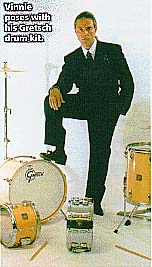
vinnie colaiuta: modern drummer
magazine
november 1982
a producer once told vinnie colaiuta that if you threw tony williams and
steve gadd into a blender, vinnie would be the tasteful concoction. he laughs
modestly while he shrugs off the compliment, but it is probably an accurate
description. justifiably, he is the talk of the town and drummers pack into the
l.a. club where he plays three nights a week. one drummer comments that vinnie
is the best drummer he's ever seen and another puts it simply, repeatedly
exclaiming, "monster!"
innovative, colorful and tasteful, vince colaiuta began as did many, playing
pots and pans while growing up in pennsylvania. after graduating to toy sets
with paper heads, his parents finally bought him a semi-professional japanese
set which he'd play with the neighborhood kids.
there was never any doubt that his instrument was the drums, even though he
also had an electric guitar and took organ lessons. in fact, when he expressed
the desire to play drums in the junior-high-school band, the band director
informed vinnie that there were too many drummers and he should take up another
instrument. he played flute for a year until the drummer vacated the seat into
which vinnie slipped. once the lessons began, vinnie recalls, "i couldn't
get enough of it. i was real interested in music notation and rudiments and
technique whereas a lot of guys didn't dig that stuff. i learned real fast
because i was always practicing. i would go into english class and sit in the
back of the room with a remo practice pad and practice double-stroke rolls and
get kicked out of class."
when he finally got a good drumset at age fourteen, he was extremely
grateful. "i was overjoyed
when my parents bought me the set, because up to that point, i had only been
studying on the snare drum. when i sat down at the set, though for some reason i
didn't have any problem. i just sat down and played, probably because of all
those toy sets. coordination didn't pose much of a problem until i started
getting into the stage band and had to read drum parts with the foot and
everything. when i first saw that, it was a trip reading drumset stuff--the
hand, the hi-hat, the bass drum, independence and all of that--but i just went
and practiced." drum corps, summer camps and a succession of lessons
followed, and after finishing high school, he worked in local bands for a year
before enrolling in berklee, a decision inspired by many of his classmates and a
chance meeting with berklee student steve smith, who came through town playing
with a big band.
i wanted to gather as much information as possible. i thought it would give
me the chance to polish everything before i went to step out. i knew it would be
tough and i wanted to be ready for it. when i got out there, it was really good
that i did that. i also wanted to learn more about music theory in a practical
sense and anything that would help me in the most remote way, whether i was
going to learn writing to use it to write or just to give me a different
perspective to music. it really did make me listen to things differently and it
gave me a different awareness.
when i got out there, all i knew was the reputation that berklee had and i
didn't really know what to expect. my first day, orientation at 7:00 in the
morning, there were 800 drummers and like 1500 guitar players; totally different
from what i expected. i was expecting big bands and seeing buddy rich walking
around picking like, 'i like this trombone player--wanna be in my band?' i just
took my tests and placed in a bunch of classes, like beginning arranging,
because i didn't know anything about that, and an ear training class. the
writing department there was really great, except they have their own way of
doing it which is unlike any other place. like the way they teach you to
arrange. they teach it to you with terminology that you don't use once you get
out of that place. it's only a means to learn it, but it's an efficient means to
cram it into you fast. in the two semesters that i went there, i learned how to
arrange for six horns. i used it a couple of times until i said, "i'm not
going to do this. there are cats who do this for a living. i'm a player."
after i completed a year there, i wanted to go back only for the writing,
because i was really getting into it, but i didn't have the money. i passed out
of the percussion department in one semester. i studied with this guy named gary
chaffee for two semesters, but the first semester i pretty much whizzed through
everything that he had. he was a wonderful teacher and the greatest guy and he
had a really great method. the whole school adopted his method. he was doing
things like applying polyrhythms to the drumset. he had a certain manner of
teaching independence by getting into funk drumming, tower of power stuff, and
weird groupings that were really cool. he would show you how it was broken down
and rhythmically what it's based on. it was real interesting and he had it
planned out real intelligently. there were all these chaffee clones running
around because he really had it together and everybody was using his method. so
i went through that first semester. by the time the second semester rolled
around, the drum lessons turned into a scene where i would go in there and gary
and i would put on a tony williams record and listen to it and sit down and play
things together and just rap. then smitty (steve smith) and i took group lessons
for the second half of the semester. we'd
just go in and play and have a good time and it was a gas. then chaffee said to
me, 'man why don't you just move to new york when the school year is over?' he
felt that i was at the point where i should just get out there but i told him i
wanted to come back and do more writing stuff. finally i realized that i was
going to be a player. i couldn't get the money to go back to school anyway, so i
just hung around boston for a couple of years. there were a lot of good players
there. i was playing these top-40 gigs to survive. i wanted to do the jazz gigs,
but there was no money in the jazz gigs.
during those two years he also worked with a band which hooked up with al
kooper. after going on the road with kooper, he offered to produce the rhythm
section. recalling his first major
recording experience, vinnie laughs, "i didn't know anything about getting
a drum sound or anything. i was just into playing.
getting a good track was something i had no concept of. i wanted to play
for the tune and just play. kooper would say, 'well, save that for your first
solo album, okay?' my drums sounded like shit, but i was having a good time. i
learned a lot from doing that, though. there
were probably a lot of people who had never been in a studio before and didn't
know how to get a drum sound, but when they went in, people hipped them to it
real fast. what happened with me was that i didn't know anything about it when i
got in there. but they didn't say
'well, change your head. we're not going to get a good sound with these heads.'
it wasn't anything like that. they just took the drums that i had and i think
they might have said something like, 'could you tune this a little different?'
the producer came out and hipped me to some things like tapping the snare drum
up. eventually i ended up getting a livable drum sound, but now when i listed
back to it in perspective, it was horrible.
on the other hand, you can go into a studio even if you have had studio
experience and still get a lousy drum sound, so you never know. i've been in
studios in new york where they've had the worst set of drums in there. the
engineer messes around with it a little on the board, puts some tape on it and
bingo, ten minutes later you can't believe he got that sound out of those drums.
sometimes you'll go into a studio out here with a great set of drums, and the
guy starts giving you a hard time about it, so you still never know. after
returning to boston, vinnie finally made the decision to move to l. a.
permanently in january, 1978. a few months of rough times followed until
april, 1978, while doing a gig with tom fowler. fowler mentioned that frank
zappa was looking for a rhythm section.
vc: i had always been a big fan of zappa's and had every record.
in fact, i had just bought live in new york and loved it. it was funny
and it was musically great. the irony is that i called the office and bugged the
hell out of them, asking if i could bring a tape by. they said, "no
tapes," but i dropped one by anyway. i'd go there everyday until one day
they called and said, "alright, mr. zappa will listen to you wednesday
night." my heart dropped and i literally sank to the floor. i was so happy,
not just at the prospect of a gig, but because it was him!
rf: what was the audition like?
vc: i just went in there with the attitude that i was going to shoot my shot
and was not going to get real uptight because it was frank zappa. i would just
go for it. this was it and i was going to put it all forward. i went there and
was watching these people audition. the average time they lasted was like 15
seconds.
rf: why do you think they weren't cutting it? what was lacking?
vc: it seems as though they just couldn't go through with what frank wanted
out of a musician. frank would put this music in front of you that was
ridiculously difficult, like equally on par with 20th century compositional kind
of stuff, and rhythmically it was incredible. these guys would sit there and
they could play grooves but they couldn't read or vice versa. he looks for a
special combination of elements in a person and i guess they weren't there.i
auditioned on bozzio's drums. i had never played on two base drums, but i said,
"screw it--i'm going for it!" he put this thing in front of me,
"pedro's dowry," and it was the melodic part that i had to sight read
in unison with the marimba. so i sight read a little bit of that. i just had to
concentrate on it completely, and to my surprise, i didn't make any mistakes. he
was about to give me "the black page." i had tried my hand at
transcribing it, so i had it memorized and before he gave me the music, i
started playing it. i go about two-thirds through it and i guess he heard enough
because he said, "okay, yes, you can read." then he started playing
this thing in 21/16 and he wanted me to play along. i grasped it; it was all
subdivided in threes and twos. then
he told me to take a solo, so i played on it. then he came back in and played
and said, "okay, that's enough of that." he started throwing tune
after tune and we went through about four tunes. the whole thing lasted about
fifteen minutes, which was like a record. then he pulled me aside and asked me
when i could start. i turned white and said, "anytime." and that was
it. that bailed me out of my whole living and financial situation.
rf: terry bozzio said he almost felt at times that zappa would write these
ridiculously difficult things to taunt his players to see if they could actually
do what he'd written. although i'm sure some of what bozzio said was
tongue-in-cheek, how do you feel about that?
vc: i've seen situations like that where i've pondered the same thing. but i
don't doubt the sheer musicality of it for one second. i think it's brilliant
and as far as i'm concerned, frank is one of the most gifted composers of all
time. i don't think he has been duly recognized as such.
rf: you played double bass with zappa?
vc: here's what happened. when i started with frank, for the first two tours,
i had this little gretsch set with one 20" bass drum and he loved it. but
after a while, i wanted to go out and get a bigger bass drum, a 22" or
something. he said, "no i'll make it sound good." so he went out and
got a lot of outboard gear and made it sound good. he just loved the idea of
this little set i was playing. i sat like two inches off the ground and he kind
of liked the concept of where i was coming from. i guess he wanted to get into a
different approach, drumwise. finally, on the last tour i told him i wanted to
play two bass drums. he said, "no, because we'd have to leave one mic' open
all the time and there would be problems acoustically." but finally i
convinced him and just took them on the gig. i didn't really practice on them,
but when you rehearse a tour with frank, you rehearse for like two months, eight
hours a day, before you go out. so i got a chance to get used to them in
rehearsals. but it took a while. we went on the road for three months or
something, and by the middle of the tour, they started feeling good.
rf: with two bass drums, the question invariably comes up as to the
utilization of the second bass at the expense of the hi-hat. can you describe
your approach?
vc: my approach differed as time went on. i wanted to play two bass drums,
but i just wanted to play them as a supplement, to add some bottom heavy color,
and it did do that. sometimes i'd play them in unison and it was an effective
thing to use on solos, just independence-wise. it developed that kind of
strength and technique in my left foot and that was good and it makes it sound
real big. it's funny, my whole equipment scene evolved to a point with frank
where at the end of the time i was with him, i has two bass drums, i had a
synare electronic bass drum in the middle of those two drums, a real snare, a
synare snare, timbales, four syndrums, five synare tympani, tom-toms, roto-toms
the two cymbals on top of one another, and one of those splash cymbals that is
cut out of a hi-hat so it sounded real thick. i was starting to think of it like
all these sound varieties to the point where i'd come up with grooves that you
wouldn't normally do on a hi-hat and one bass drum. nowadays, i'm playing one
bass drum, two tom-toms, two floor toms, a ride cymbal, two crash cymbals and a
hi-hat. you just have to think about it if you want to play things that are
different because there are sounds that aren't there maybe. on a big set up like
the one with zappa, if you have radically different sound sources available, i
think that's the most musical way to approach it.
rf: your version of "peaches en regalia" is very different from
aynsley dunbar's version. i wonder whether that was your doing or how much zappa
dictated what you did.
vc: he totally rearranged it. we had done "peaches" and he said he
wanted to do a completely different arrangement. we just took the who thing
apart and rebuilt it like an erector set.
rf: was it a "we" or a "him"?
vc: in terms of arranging, it was pretty much him, like "you play this
and you play that." i pretty much played the groove that was on the record
except when it went into another section that wasn't there before. he said,
"okay, we're going to go into reggae now," and for four bars i'd play
reggae. then it went into some kind of devo-esque kind of thing at the end and i
played a weird devo kind of drum part. he just told me what to do in that sense.
the tune opens with this drum fill and sometimes i'd play it like the record and
sometimes i wouldn't and he'd say, "no, play what's on the record."
other times he wouldn't say anything. other than that, he would say, "play
it like this or play it like that," and on that particular tune that's what
happened. other times we'd be playing a tune and i would just come up with my
own part. then there would be another tune where he would hand me a written drum
part or he would say, "play this against that, or play five against
four." i don't know if it was to challenge me or not, but if it was, man,
you gotta meet the challenge.
rf: so you found it challenging?
vc: oh yeah, it was great. i learned so much from that. it was a great
challenge for me. i had a pretty fair knowledge of polyrhythms and stuff like
that before i got in the band, but nowhere near what it became. i mean, i knew
what they were theoretically, but in terms of approaching them the same way he
did and using them on the drumset, no way. i got all that from him. in the two
and a half years i was with him, it was incredible what i learned. if he sees
you have it to begin with, you have to keep up with him. there's so much
information and knowledge coming out of him so fast that you have to be on your
toes every second. it's incredible. i didn't want to think of it like that,
"oh god, i have to keep up." i just kind of went along with it and
knew that i had to meet the challenge. i enjoyed it, got off on it and learned
from it. i noticed that it changed my way of thinking to the point where it
started coming out of me. i would play behind his guitar solos. he said, "i
want you to listen to what i'm playing because i'm playing all those rhythms.
when you accompany me, i don't want you to just try to guess what they
are and play some standard rhythmic fill. i want you to understand exactly where
i'm at and communicate with me on that level." that forced me to try to
improvise these polyrhythms and think in that way, which is not the norm by any
stretch of the imagination. people just don't do that. i don't care how
stretched out you get when you jam, people just don't do it that way. it forced
me to do that and i think he saw that i had a talent for doing that.
rf: i'm tempted to say that you seem just as at home playing odd time as you
are playing regular time.
vc: pretty much i am, yeah. i spent a lot of time practicing it when i lived
at home. i'd go up in the attic and play in seven for half an hour.
rf: you mean as a kid?
vc: yeah, because once i left home, or actually, once i left berklee, i
couldn't really practice. i still can't out here. i've been living in an
apartment for three years and i can't play drums in my apartment. i practice
when i work, which is a drag in a lot of ways, but it's like a language. if you
don't do it for a couple of months and suddenly you're at a gig and somebody
throws a tune at you that has shifting time signatures, run through it a couple
of times and then bingo. that's what it's like for me. if i'm doing it a lot,
it's easier. it's like reading; if i don't read stuff that's that hard,
sometimes i'll go home and just whip through some literature that i haven't seen
in a long time to brush up on it. the thing about sight reading is that you have
to read things you haven't seen before.
rf: with zappa you really went out there at times.
vc: yeah. in the beginning, when i first started doing it, i was pulling it
off, but there were a lot of loose spots. but i had to make it come out in order
to develop it, otherwise, how was i going to do it? then i got most accustomed
to it. i'd sit there and think about it and listen to the road tapes and it
started being more comfortable to me where it just started oozing out of my
pores, which i think frank really enjoyed. i had a good time doing it because it
was the only time and place i could do that. frank loved it because he said,
"this cat has the capability to do it and i'm going to get it out of him
one way or another." he would make me do it, so i started developing it. if
it wasn't for that, i probably wouldn't have gone for it. it did get loose every
once in a while. we'd be out there, and when you've got four or five guys
playing along and the drummer is going out on mars, what are they going to
think? they've got to get used to it too, if it's something they haven't
encountered. it was kind of hard for me for a couple of tours, until the last
tour. i had taken time off from the band. i came back, not having done that
stuff for a while, but having done other things, like playing in a studio a lot,
which matured my concept in other ways, which fed that. one hand feeds the other
and it all helps and your time concept gets stronger. i had gotten a lot
stronger doing that in being able to read frank and gauge the other guys in the
band. it wasn't like when we were doing that stuff, it was just me and frank and
the other guys were just sitting back wondering what to do, because those guys
were all real strong musicians. i
had a rapport with the whole rhythm section and those guys were right with me. i
got to the point where i was able to follow frank and do that stuff much more
confidently and accurately, plus monitor, with another part of my ear, exactly
what was going on in the rest of the band too.
rf: what are you thinking of when you're out there? are you keeping count or
what? what do you think is the secret to playing odd time?
vc: i definitely think that the key to it is counting first. then you become
comfortable to the point where the count becomes engrained in your subconscious.
you learn how to do it from counting it and then it's feeling it. a guy who
can't read, or who can read but isn't an ace reader, can feel it. there was one
guy in the band, ike, who hadn't really had any formal training in terms of
polyrhythms and stuff. i used to go out there, to uranus and back, and this cat
was right there, always. we've had discussions about it and he told me he just
feels it. it's like a pulse to him.
rf: then you were really allowed total freedom when it came to stuff like
that?
vc: pretty much, but only to the point where i'd better know what i was
doing. and i had to prove that i knew what i was doing, and i did.
rf: there was one song, "keep it greasy," where i wonder how you
were thinking of the time signature.
vc: there's this one part where the actual time signature is 19/16. the feel
is like it is 4/4 with three 16th notes tacked onto the end of it. then there's
another part in 21. it was all one live take; no splices or adds or anything. we
just rehearsed it. we used to play it on the road and frank said, "okay,
we're going to elongate that in the studio and that's going to be a solo. you're
just going to vamp out until i give you a cue and then we'll go into something
else." and bingo, he gave us a cue and zipp, we were in 19/16. we just cut
that track with guitar, bass and drums. i don't recall if there was electric
piano in that particular solo section or not. we went to village records one day
and just churned out tune after tune, all live, no edits or anything.
rf: zappa's studio tracks are a lot cleaner than his live recordings. how
different was that process from a playing stand point for you? was it a lot more
dictated?
vc: for example, on certain tunes on the joe's garage record, there were
tunes that were pretty much groove tunes and i played them like that. i was
really enjoying going in there and trying to play great tracks. on, i think it
was, "token of my extreme," we just grooved out and tried to make it
feel as good as possible and not get in the way of anything that was going to go
on top of it. on the other tunes, like "keep it greasy," it was as if
we were going to play it live, except the time really had to be cool. frank told
me once that he found it difficult to get people to peak in the studio, so you
can never get too energetic for him. it really wasn't much different.
rf: why did you leave frank?
vc: i was going through stuff like, "wow, i'm on the road all the time
and when i get off the road i can't work." i wanted to get into the studio.
rf: why?
vc: because i like recording a lot. i love playing in the studio; i love the
way it sounds and feels in the studio. when i was back east, there were three
studios in town and it was something that always fascinated me and something i
wanted to do as a musician. even though i enjoy going out on the road, after a
while i said, "i want to be at home and i'll never work in the studios if
i'm not around long enough for people to call me." just because i can go
out live and play my ass off, doesn't mean i'm going to be able to go into the
studio and play well, unless i go in there and do it and work for different
people and be able to please all kinds of different people.
rf: define what a good drummer is.
vc: a good time keeper, first of all, and a person who has a good musical
sense.
rf: how does a good live drummer differ from a good studio drummer? you just
said that sometimes you can't apply one to the other.
vc: sometimes yes and sometimes no. i've seen people play live where the
entire band sounds like a record and then i've seen other situations where it
was totally creative. take a live situation like the doobies or boz scaggs or
something. i'm not saying that those guys don't stretch, but it's very
orchestrated, which is great for the music and everybody's playing parts that
fit and make that music happen. but, now take the art ensemble of chicago.
how avant-garde can you get? those are two live situations. those guys
aren't thinking like studio musicians so it just differs with the idiom of the
music. idiomatically it differs, the way you approach it. live playing vs.
studio playing depend on what your concept of music is; the big picture of how
you conceive music and what kind of player you are. it also depends on if you
have any concept at all of live playing vs. studio playing, if you're a sideman,
and how whoever you're working for wants you to play. if you're in a big rock
band, you might have to play with energy and be a showman. if you're part of an
orchestra, you have to read and they don't care about you twirling your sticks.
and if you're just playing in an avant-garde situation, it's how much liberty
you can take and the idiom of the music. there's a million different factors in
that, from what i've noticed.
rf: now that you're immersed in the studio scene, what do you see that makes
a good drummer? what are the producers in the studios wanting?
vc: somebody who has real good time, is an excellent reader, whose drums
sound good, someone other musicians are comfortable playing with, and who can
assimilate a variety of styles. it's a real personal thing, trying to read their
minds, depending on how tangible the producer or the artists is. it's great when
somebody comes up with a tune and it's just a bunch of chords on paper. you're
sitting there and nobody has any idea of what it's like except it's in 4/4 and
has this amount of bars and you're able to make it work.
again, there's so many different factors. it's almost like you have to
have a good knowledge of all the elements of music and be ready to draw on that
mental rolodex at any tine and really be able to efficiently pull it off,
despite the amount of communication you have with who you're working with.
sometimes it happens and sometimes it doesn't. it depends on how
difficult the people are to work with, it depends on the other musicians and how
competent you are. at least, that's what i've found.
rf: how did you break into the studio scene?
vc: probably the one person most responsible was neil stubenhaus. the first
date i can remember being hired on was a date that neil said, "you have to
get vinnie." he's helping me so much in my career. i think the people
mostly responsible for getting me work were neil, tom scott, pat williams and
hank cicalo. it does have a lot to do with people you know.
rf: what, to you, is a positive session?
vc: a positive session is when you go in and the producer and the engineer
are so together that you don't spend the entire session trying to get a drum
sound. some dates go for six, seven, or eight hours, and constantly through the
date, they're still getting your drum sounds together. it's like, "wow,
didn't you get it together yet?" or a positive session is when the producer
is not a jerk and when the guys on the date are the right guys. when the
producer picked the right guys and you're not saying, "i've never worked
with this bass player before, and wow, he's great, but for some reason it's not
clicking." he might be sitting there thinking the drummer is a jerk. it's
the same thing with a band. when you play with a band who plays together all the
time, it gets tight, like esp. i work with stube(stubenhaus) in the studio a lot
and i know when stube is there it's going to happen because he knows every
minute thing that i'm going to play and i know every minute thing he's going to
play. that helps a lot right there. and if it's a new musician that i haven't
played with, but he's happening, it's still going to click. the challenge of the
studio initially is that you have to go in and make music out of what is placed
in front of you right away. you have to interpret what's in your mind and what's
on the paper. but they can make it easier for you if you don't take it too out,
like if they don't make you do it 99 times for no reason. for example, you're
running a chart down and you immediately play the right stuff. but for some
stupid unexplainable reason, they have to go by way of china only to arrive
three hours later at what you initially played. what's the point? when you're
playing the right stuff, they acknowledge it, it's happening, they're real easy
going and they don't exert unnecessary pressure on the guys, it's positive. some
musicians tell me that there are certain people who have philosophies that it's
good to make guys do it over and over again, to the point where the emotion
becomes totally detached and they're just playing it like a machine.
to me, that's not happening. to me, you reach a point where you know the
song and you burn out on it, you've peaked on it, you're bored and want to go
home. if they want you to play it emotionless, why don't they tell you to play
it that way? so, i guess a positive session is where there is no ego bullshit or
a producer who thinks he knows what he's talking about, but he doesn't know
anything. he tells you to play something and you literally play it and it's
totally stupid, where you play exactly what he sings to you. you can't do that.
they have to know what you sound like and that they're going to hire a bunch of
musicians who know what they're doing. if they hire a bunch of guys who know
what they're doing they're going to go in there and do it right. after that,
it's just a matter of the producer being a guidepost, kind of guiding you along
in a real sensible manner without all that other crap.
rf: what are some of the sessions you've been doing recently?
vc: i did gino vanelli's nightwalker album a while back. i did a few sound
tracks on an album called swing with richard perry that he's really behind,
which is '40s music. i just did the title track and a couple of tunes for joni
mitchell's new album and all of the judy collins' album, which was an
interesting project. it was really a potpourri of musical tunes and musical
styles and the musicians were great. i've done a few major jingles with charlie
calello with such artists as janis lan and nancy wilson. i also did a scene in a
film with bette midler a couple of months ago where we spent eight days filming
a five-minute scene, and a new film with richard pryor that pat williams
composed the music for. i've also done some tv themes that pat also composed the
music for such as lou grant, the two of us and a new tv show called making the
grade, which tom scott composed the music for. actually, i've been doing a lot
of varied things.
rf: what about working with a click track? did you find that difficult to
adjust to?
vc: not really. maybe at first it kind of took me aback, but it was a kind of
thing where you'd better get used to it real quick or else. so i did. you
approach it cautiously until you're comfortable with it. if you have a good
intrinsic sense of time, then you can probably adjust to a click track well.
i suppose if you play with a click track, it could help your time. but if
you have a good intrinsic sense of time and you're not playing with a click
track, it's not like you're going to conceptualize your time or try to play like
a click track as much as you are just making the time be real good and feel
good. from my experience, sometimes i've worked with a click track where it
helped and it was definitely advantageous to use it. other times it was like,
"why are you putting this thing on?" there are situations where the
producer thinks it's just the right tempo, although it's too slow. the musicians
are just sitting there suffering through it, but the guy insists on it and can't
hear that it's killing the tune. you have to do it anyway and just go through
it. meanwhile, the tune sounds like it's lumbering along to its own natural
death.
rf: you mentioned time as being the main ingredient to being a good drummer.
how do you work on that?
vc: i'm still learning. when i first got to l.a., i thought if i was able to
do as many little demos as possible, it would help me. i don't think that way
anymore. i think now, that trying to play with the best players possible will
develop your time, if you can get them to put up with you if you're that bad.
if you are talented and have pretty good time and you play with guys who
are willing to play with you who are better players than you are, you can gain
more from that than playing with players who are terrible. you either have the
talent to have good time or you don't.
rf: did you ever work with a metronome?
vc: yeah, at certain points. when i would enter into these little local
contests playing snare drum solo when i was in junior-high, i'd work with a
metronome to make sure i didn't fall behind. i never really did that with the
drumset, though. i didn't have a really terrific metronome and i didn't have any
headphones. the only time i did that was when i got into the studio and had to
play with a click track and i had to learn fast. i just didn't have that
available to me at that time. i don't think i really thought of it at that point
either. it all happened when i was in the studio. i don't think of myself as a
session player as much as i like to think of myself as a musician who happens to
play drums.
rf: how are you differentiating?
vc: i think a lot of it might lie in attitude. there are a lot of musicians
who are great in the studio but who are just great musicians to begin with.
you can get better from getting more studio experience. you can mature
and become a better musician. but when i was learning to play, it wasn't like,
"well, i've got to have this, that and the other thing together so i can
get into the studios." it was that i felt a need to have that because i
heard it and i wanted to be able to do things that i heard. it just so happens
that it increases your capacity. when you translate that into the studio and you
cross the recording threshold, it isn't like you have more capacity than you
need. you just have more information to draw on, which can only help you, not
hurt you.
rf: how do you achieve your own style?
vc: i don't know. that's something i've been pondering for years. i don't
know if it's something you attain consciously or subconsciously. i'm not sure. i
can't provide the answer to that, but just drawing on influences, to the point
of where you're not going to become a clone of one person or one idol. that's
how i learn, from listening to records, transcribing, listening, trying to
absorb it all and hash it out. i felt that i started establishing an identity
when i was with frank in terms of trying to improvise those polyrhythms and
stuff and doing something that i had never done before. trying to apply stuff
like that in commercial situations is a different story, though, and still have
something that people can identify all the time. people have told me that i have
my own style and they can identify me on a track. i don't know if i agree with
them, even though i can usually tell when it's me and sometimes i don't dig it.
it's like, "i'm on this record? take it off! too bad, it would have been a
great record, but it's only an okay record since i'm on it." but if you
have something to capitalize on, then you're really identifiable as opposed to
being able to do something in only one situation. if you have your own sound
that you can use in every situation, people cash in on you. i was in a store one
time where they had one little speaker. i couldn't even tell who the artist was
or what the tune was. i heard about one bar and said, "that's steve
gadd." i waited until the announcer came on, and it was. or i can say,
"that's jeff or that's harvey or so and so. "
rf: can you tell from the way they play or the way their drums sound?
vc: well, it varies. the first giveaway in that instance was that in the
first second i took an educated guess because i thought that was steve gadd's
cymbal sound. then i heard something--maybe it was just the way the time
felt--and in the next two and a half seconds, i knew.
rf: what would you say your forte is?
vc: i don't know. i guess i consider myself a pretty good reader. some people
say i have good technique. i don't know.
rf: what about musically? what do you think your forte is?
vc: there's only two kinds of music to me. it's probably been said a million
times, but i'm going to say it: there's good music and bad music. in terms of
what my forte is, i don't even know because the things i might feel at a
particular moment that are not as strong, i'll immediately try to make them
stronger and it varies with the situation. for example, let's say i were to play
one kind of music good, say in the style of jackson browne or something.
what if i went into one of that cat's dates and i was cutting the whole
album and then he pulled out one tune that he might have written from a certain
experience that i have no idea how to interpret? to me, it goes even beyond the
idiom and the artist, down to the tune. then what are you? if there's something
that throws me like that, i just have to try to remember that specific
situation, analyze it, think about it and then figure out how to deal with it
from there.
rf: is there a particular kind of music you enjoy playing the most?
vc: good, and that's it. good music. everything that's good. there are so
many kinds of music that i dig and there are certain things that hit me
emotionally, like the beatles' song "martha my dear," which is
probably my favorite tune. i dig the time that's on there. it's not a drum
concerto or anything, but who gives a shit? it's a great piece of music and i
could never play that, or anyone else, better than ringo did. he played it and
that was it and that's the only way it's going to be. but if i were playing that
particular piece of music, i'd enjoy the hell out of it! or like, "adagio
for strings" by samuel barber. it's one of my favorite pieces of music and
there are no drums on that. i did a record in europe last year with a viennese
cat and he was trying to explain to me what the iyrics meant in english,
figuring it would help me interpret the song. finally i said, "you know, i
don't hear any drums at all on this." the guy ended up cutting it just with
strings and it made it.
rf: why did you decide to stop using double bass?
vc: no one ever uses it in the studio situation where you get called as a
sideman. and just conceptually, i was in a different frame of mind where i was
just geared to one bass drum and getting things out of just what i had.
i remember at berklee i used to go into the practice room with just a
ride cymbal and a snare drum and maybe a hi-hat. i was surprised at what would
come out and what you can get out of what you have and how you have to change
your head. most people think, "i can't do this . i only have a hi-hat and a
snare drum." but you can if you just apply yourself to it. less is more if
you can really play. it's all in how you approach what you have as opposed to
what you have.
rf: could you talk a little about tuning?
vc: tuning is something i've really learned a lot about from being out here
in l.a., just talking to different people about it and a trial and error
process. i just tried to learn as much as i could about my drums. say i have an
8 x 12 tom tom--i'll get an ambassador, top and bottom, and tune both heads the
same until i get them to a perfectly pure fundamental tone. if i want a dip or
something, i can usually get it on a drum that doesn't have that many lugs, like
a smaller diameter drum with only five lugs. i just detune one of the lugs on
the top head and then i'll tape it up. past that, it's just feel for me. it's
something that i don't even know how to analyze. i just learned through trial
and error and feeling it out. recently i've discovered some different tuning
methods. every drum has a comfortable pitch area to the point where it sounds
out of its range, high or low, and if you tune the top head looser than the
bottom, it'll get flappy and messed up. i tried something recently where i tuned
them almost too low and taped them and the guy messed with the eq in the control
room. they came out sounding with lots of slap and echo, and he put some echo on
them. i've gotten that two or three times already and i felt like i hit on
something. i don't really know how to explain it, though. i just mess around
with it until it happens. as far as the little drums, i'll just put the heads on
and tune them up, top and bottom, to get good fundamental tones out of them and
they sound real pure. there's an actual pitch. it's not like i tune them to
fourths or something; just where it sounds like a good pitch range where the
drum really resonates, which sometimes doesn't help with snare buzz. but i don't
usually have that many problems with it. i don't tune it like a blanket. i
used to think i had to do that to get a deep sound out of a snare drum, but i
found that that's not true. you don't have to tune a drum head until it's dented
and put four wallets on it. when i did joe's garage, it was kind of difficult
for me because the drum head had a dent in the middle of it in order to get that
fat snare sound. but like now, i've got a snare drum that's a 5 3/4" and
i've got it tuned to an actual tone and i can actually get a rebound out of the
head and it actually sounds deep enough. it's something i can't exactly
explain. i think tuning is real personal.
rf: you sit very low.
vc: i always use a tama drum seat because they seem to go real low, or at
least when i discovered it, it seemed that it was the lowest one. i had a roadie
chop it off so it would go lower.
rf: why?
vc: because i was real comfortable sitting like that. it didn't even go quite
low enough. i wanted to sit lower, but now i don't chop the seat anymore. i just
sit as low as it will go--and it's still pretty low. i get a lot of power out of
my feet that way too. it never affected my leverage or my speed that much,
especially not now because i don't chop it. it's comfortable for me. i mean, my
knees aren't up to my chin or anything. i felt uncomfortable sitting real high.
it just never felt good.
rf: how do you feel about drum computers, etc.?
vc: i've been kind of toying around with the idea of a digital drum set-up.
i thought about it; not just interfacing a linn machine with drums, but
like when i heard about these simmons electronic drums, i thought if these
things had a digital brain happening and the playing surfaces themselves are
touch sensitive, then that is it! it turns out that they weren't. they are just
a regular old beefed-up syndrum type scene with a bunch of tone generators and
oscillators. when i found it out, i was kind of bummed out. the guy said i could
buy one of these things and hook it up to a linn machine and have the digital
sounds with the linn machine so when you hit the simmons pad, you hear the
digitally programmed sound in the linn machine. it would be touch sensitive, but
it would be what you physically played with the time element the way you played
it, as opposed to your programming a beat into it and adjusting it to perfect
time.
rf: you obviously don't like that.
vc: well, i don't dislike it. it serves a purpose and as a matter of fact, i
think it serves a wonderful purpose. but i don't think it serves a purpose of
replacing drummers or the purpose of creating new jokes about drummers, like,
"what happens if your drummer doesn't show up or if he shows up an
hour late . . . " come on! you gotta program the machine and if the thing
messes up and fries a chip or something, then you're out of luck. and it only
plays what you programmed into it; it doesn't have a mind and it can't jam. but
it's a wonderful addendum and something that's an addition. i've played around
with the linn machine and i've dug it, but what bugs me is, cats will get it and
get carried away. frank got one. i was rehearsing with him to go on tour and he
brought the lm-1 to rehearsal. i was messing around with it and finally he came
up to me and said, "why don't you just take that on tour? take the lm-1 on
tour and a couple of incidental tom-toms to bang on. play the linn machine as
your primary axe and just take a couple of tom-toms to play fills on." give
me a break! months later i called him and he was telling me he had all these
tracks with the linn machine. i went up there expecting miracles. i figured he
could just push the buttons to his heart's content and get anything he wanted
out of it. i walked out of there a little let down. i've heard that thing on a
number of albums. some albums i've heard it on, it sounded great and others it
sounded like shit.
rf: what, to you, is a good solo?
vc: about the only thing i can say about that is, to me, a good solo is
something that makes sense musically in a way that is overall one complete
musical statement. but within itself, it has to tell some kind of a story where
the whole thing starts at one point, goes to a climax and has an end and is a
statement, regardless of whether it has sections to it or it is a free form
solo. i suppose, depending on the type of solo, if it's a live situation where
you have to capture the audience's attention, you have to really think, to a
certain extent, about being effective. you can't lose them with anything that's
too cerebral and you have to think of the stuff that's going to be effective.
you have to think about the form and make a valid statement for that particular
song. that's pretty much what interests me. as far as effectiveness goes, again,
i suppose it depends on the tune, the audience, and whether or not it's a
concert situation or say, a jazz situation. when i was playing solos with frank,
it varied. i would play a solo in the same place every night and i would try to
do things that were effective and things the audiences would enjoy. after a
while, i got to the point where i said, "can i solo on a different tune
tonight?" that's just where my head is at about it.
i'm not the type of person who can say, "i've got this solo worked
out and dig this!" to me, that's where i'm going to improvise. so i
improvise and if it gets to the point where i don't feel i have anything to say
on a particular tune, i don't want to do it. sometimes it's like, "let me
trade fours with the bass player on this funk tune and maybe i'll have something
to say." maybe i just don't want to do a solo. i have nothing to say and
that's the only kind of soloing that interests me. if i have to play a solo at a
certain place and i'm getting paid for it, if i'm capable of doing it, by all
means, i'll do it though.
rf: to you, playing with a good bass player is really important.
vc: yeah, it is.
rf: what do you look for in a bass player?
vc: someone who is just comfortable to play with. the bass player and the
drummer have to have a communication. it's one thing to have a bass player
who'll play to try to make the drummer sound good. but if the bass player and
the drummer share a similar concept of the way they playtime, if that's
happening, if you both individually have good time to begin with and you can fit
together, it's great. it's funny, because there are a lot of bass players and
drummers who have great time, but for some reason, they just don't mesh.
like stube and i, when we play, it's second nature. i know the way he
plays and he knows the way i play and it fits perfectly. there's a communication
there and that's just magic. when you have players that are real competent, or
more than just competent, you never know what's going to happen as far as
spontaneity, the magic and the energy. jeff berlin and i play a lot of gigs and
we just go for it. some of the things that happen are just great. at any given
moment, something magical could happen. a lot of times, i play gigs like that
and i wish i had a little tape recorder going. i used to get together with this
sax player and we'd just get together on sax and drums. but in a regular
rhythm-section context, the bass player is real important. it's definitely the
bottom line to making a track happen.
rf: what was the band karizma that you were in?
vc: it was an original band with a bunch of real good musicians in town here.
i got in that band during the time
that i was still with frank, but off the road, which was 1979 through the middle
of 1981. we used to play the baked potato for about a year every tuesday and
then we took some time off and went back in for about four months and played on
sundays. it was a bunch of local guys playing original tunes and they were great
writers too. we really had a good time doing that and we stretched a lot, to the
point where we'd just play what we wanted. creatively, there was a lot of energy
and the tunes were great.
rf: what about the band you're playing with locally now? is that because you
really feel the need to play live?
vc: it's good, because i need a good balance of live and studio playing. all
those guys are great musicians and the tunes are fun and
it's just a real fun situation. it's three nights a week and it's great to
have a place to do that. it's real
organized and structured, but we can stretch also and it's a real stimulating
situation.
rf: is there a goal either to continue the studio scene or be a member of a
band?
vc: let me put it this way: i don't think the studio is an end in itself, but
on the other hand, i wouldn't feel insulted if i were a full-time studio
musician. i love doing it. some guys have the attitude of, "you want to be
a session player for the rest of your life?" i say, "what the hell is
wrong with that?" on the other hand, it's not something that i'm saying to
myself, "yes, this is it! i've found my holy grail and that's it." i'm
just enjoying it for the moment. if somebody came along and i was offered a
position in some band that was musically great, and/or offered me the chance to
enjoy some sort of unbelievable financial wealth and/or status, i certainly
wouldn't reject it. it's hard to
find that kind of situation where the chemistry works out and everybody gets
along. or if it's not a band that's established and you've got a bunch of guys
who want to start a band, that's tough too. every once in a while i get a
creative urge to write also, and i've often wondered if i have any talent that
lies in that direction. but i'm just going to take it as it comes. i'm not
pushing anything. i'd like to try to learn more about that kind of stuff, get a
piano in the house and sit down and mess around and write tunes and see if i can
come up with anything. right now, though, i'm just concentrating on my career as
a player and trying to have that be my musical medium. i have a lot of real
misty visions of the future, but who knows what the future holds for all of us?
i don't really know what to prepare for. i've done a lot of preparation for what
i do now, so i feel like i'm still beginning at what i'm doing. so i try to
concentration on that full time. lt's hard. it's like a big scene being in l.a.
and working as an independent person. it takes up a lot of my mental energy.
rf: we once started a conversation about channeling hyper energy and i am
sure that is a problem a lot of drummers have. can you shed any light on the
subject?
vc: it takes a lot of mental discipline, i think. in a recent issue of modern
drummer, roy burns wrote an article about overcoming the "horribles,"
which was an excellent article. i've had people come up to me and say things
like, "are you going to go out and take it all out on the drums?" to
me, that is a total misconception. i know a lot of drummers who are really
energetic and are real relaxed human beings. i'm just not that way. but when
that green light goes on, you just have to turn on the switch. it's funny,
though, because in terms of getting nervous or anything like that, it takes a
lot of mental discipline, which i think is often a collective kind of thing. say
for example, you're in the studio trying to cut a track and you've got three
people cutting a track and everybody is nervous. if you sit there and try to
make yourself calm and the other people are still nervous, it won't work.
everybody has to be cool. if you're nervous and everybody else is cool,
then it's just on you and it's something you just have to develop. lt's just a
matter of fully concentrating on what you're doing at that moment and that's it;
just pure concentration without any kind of nervousness. channeling energy for
me has a lot to do with the stimuli i get from the other musicians, too.
if everybody is starting to crank and other people's creative juices
start to flow and i'm really concentrating on the music, i can really pick up on
it. it's really an admirable
quality to see somebody who has a real shitty scene at home and his dog just
died and then he goes into the club and plays his ass off. you have to shut a
lot of that out. it's hard to do, but someone like that just has his
concentration completely on the music.
rf: is there a way you strive to get a balance in your life?
vc: yes, there is, but i'm not sure i've found the answer. it depends on my
entire existence, where i live, what my domestic situation is like, what's
happening to me musically and just trying to be strong in general, mentally.
it's something i can't really provide the answer to because it's a day to
day experience and struggle. but as you saunter through the giant maytag of
life's expectations, find out your own needs and weaknesses and be true to
yourself.
From: Zjakki Willems
2004/02
Vinnie Colaiuta plays the drums on the latest Mike Stern album,
"These Times". Out on ESC Records.
| May 2006
A bootleg CDR release from Japan:
allan holdsworth & vinnie colaiuta: miami 1989
(2006, cdr-bootleg, japan, jrm 030)
allan holdsworth: guitar
steve hunt: keys
jimmy johnson: bass
vinnie colaiuta: drums
- funnels / devil takes the hindmost
- shallow sea
- looking glass
- pud wud
- white line
|
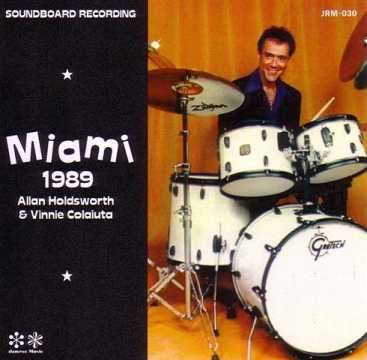
|
2007/04/13
on SAT-3, satelite tv: Herbie
Hancock in concert, featuring Vinnie Colaiuta on drums
Herbie
Hancock
Mit
Herbie Hancock (Klavier), Lionel Loueke (Gitarre), Nathan East (Bass) und Vinnie
Colaiuta (Schlagzeug)
Aufzeichnung von der AVO Session Basel 2006
Herbie
Hancock, Jahrgang 1940, gehört zu den einflussreichsten Jazzpianisten und
-komponisten seiner Zeit. Es gibt kein Genre, in dem er seine Spuren nicht
hinterlassen hätte - sei es Rock, Pop, Funk, R 'n' B, Electro, Techno oder
Hip-Hop.Die Fusion von Jazz mit Hip-Hop, dokumentiert auf "Rockit"
(1983), geht auf sein Konto. 1986 schrieb er den Oscar-prämierten Soundtrack zu
Bertrand Taverniers Jazz-Film ''Um Mitternacht'' und 2005 erschien das Album
''Possibilities'', auf dem er gemeinsam mit Pop-Künstlern wie Sting, Paul
Simon, Carlos Santana und Annie Lennox zu hören ist.
Auf der AVO Session 2006 in Basel begeisterte Herbie Hancock das
Publikum.
videography:
2000 modern drummer festival 2000 - sunday
|
The March 2007 edition of Modern Drummer magazine featured a special on
Vinnie Colaiuta.
|
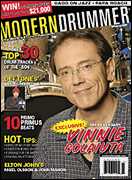
|
links:
the official v.c. site:
http://www.vinniecolaiuta.com/































































